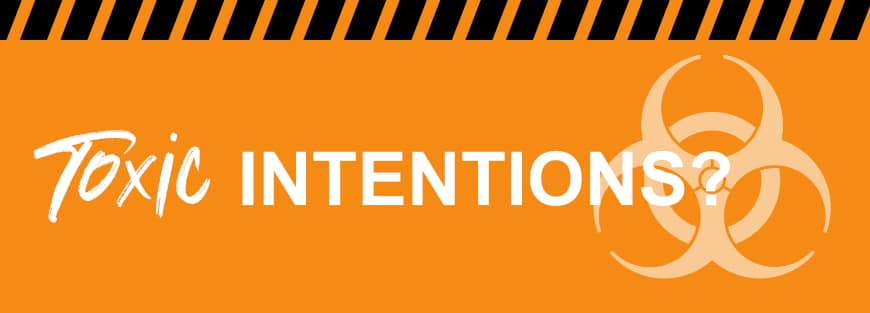Toxic Intentions?
Posted by: DVULI | January 15, 2023

by Bwana Clements, (Indianapolis 2013)
Urban ministry workers often find themselves in a position to invest in people’s lives in a real and meaningful way. Many of us have been called to help people during their most vulnerable and desperate times. With loads of new information, insight, and strategies, we move into superstar status in the lives of youth, families, churches, and the communities we serve.
Sometimes this status is so powerful that if we’re not careful, we can become the only voice those we serve listen to and lean on, effectively advancing into a dependent relationship. This is when it can get dangerous. Somehow, Satan has a way of using the “thank yous” and the “I don’t know what I’d do without yous” to speak right into our ego, making us believe that we are the only source of goodness in others’ lives.
We can begin to believe that we have all the answers and that we’re the best thing that ever happened to the ministry. Without giving it a second thought, the work we once did for the glory of God turns into “look what I can do.” The intention that used to be about using relationships to share God’s love becomes using relationships to show everyone how great of a mentor or program director I am. Hence, the relationship becomes toxic.
I wish I were writing this from a theoretical, “I’ve always done it the right way” point of view. Unfortunately, I’m a living testimony of one who can allow relationships to get toxic.
During my time in graduate school while studying to become a professional social worker, the principle of protective boundaries was a commonly discussed theme. The idea is that the relationship between the client and the service provider must be deeply guarded. Maintaining a safe relationship was kept at the forefront of every class discussion. We were taught about the power dynamic that is present with someone seeking help or insight from a professional they perceive has the knowledge to make their situations better. There is this drift from introduction to blurred boundaries and toxicity that is deceitfully slow and steady. So, in our attempt to be helpful, we must be very careful. You may be asking how you recognize it.
I’ve shared before how I discovered “I was doing God’s work without God” while participating in the DVULI training. As I journeyed through the program, I was challenged to evaluate my personal relationship with God and how dependent I was on Him as the source of the ministry He had entrusted to me. The more I reflected, the more I could see that my good looks (up for debate), charisma, speaking ability, and easy-to-talk-to personality had become a point of leverage I used as a way to get close to and drive change in others’ lives.
When I held my intentions under the magnifying glass of honesty, it was easy to see that my ego had taken over and was literally driving every part of the ministry. From participating in meetings, strategizing in the community, treatment planning for counseling clients, and speaking at churches, everything pointed back to “how will this make me look?” I had begun to lean on my own understanding without acknowledging Him, as Proverbs 3:5 admonishes not to do.
The relationships I invested in had become about career advancement, funding opportunities, project endorsements, and ego stroking. The positive changes in people’s lives became about me. The advances being made in programs and in the community became about me. No one else knew, but every time I didn’t get the recognition, I believed I deserved, I KNEW. If you’re reading this and you’ve got that “it feels like Bwana’s talking directly to me” feeling, YOU KNOW TOO.
Recognizing relationship toxins requires a deep and sincere look at your own relational intentions when serving others in need. That feeling I mentioned above when not being acknowledged or given credit should never be ignored. It’s a signal that should alert us that our ego is playing a bigger role in our intentions than we have acknowledged—a clear sign of toxicity.
Sustaining healthy ministry relationships can be hard. It’s often a thankless job. Sometimes we struggle and journey with people for a long time and never get to see the fruit from the seeds we’ve planted. Other times we do, and boy, does that feel great! If I’m honest, it feels really great and seems to make all the turmoil of ministry worth it. When those “atta boys” start piling up, it becomes really easy to get an inflated ego and lose sight of why we do the work we do.
As urban ministry workers, we must be extremely intentional and committed to always evaluating our relationships to ensure that we are operating in the spirit of “Do No Harm.” Whether a youth pastor, fundraiser, after-school program staff, athletic coach, mentor, or program director, we must be vigilant against toxicity in our relationships.
An old guy at a church I attended used to say, “To God be the glory,” in response to any compliment that would come his way. I used to snicker inside every time I heard it. Now I understand.
Bwana Clements (Indianapolis 2013) is a social worker, professional consultant, program developer, keynote speaker, and author. He earned a BS at Ball State University and an MSW at Indiana University. bwanaleads@gmail.com

